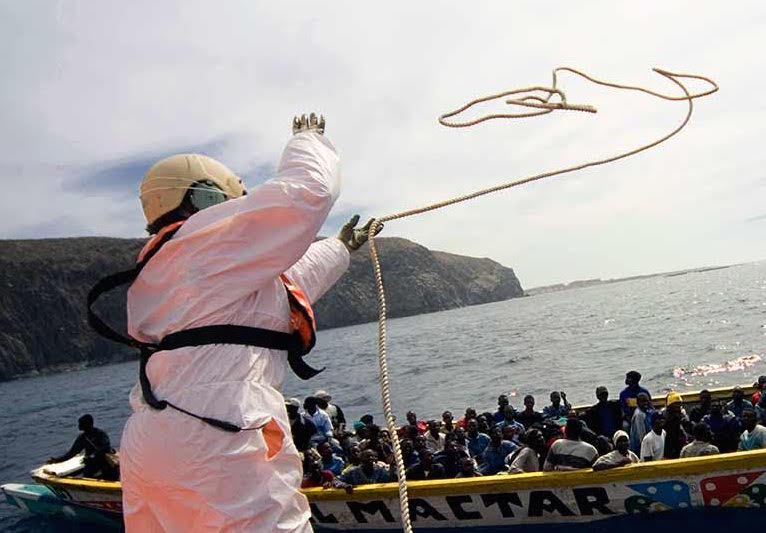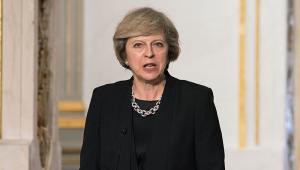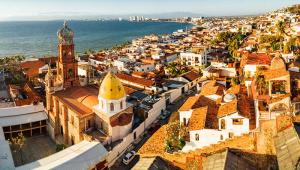In a speech tomorrow at a meeting of the European Council in Brussels, May will explain that the package will initially target transit routes running from the Horn of Africa and West Africa.
Last year, 181,000 people passed through countries like Niger, Egypt and Libya and made the perilous journey across the central Mediterranean to Italy, with an even greater number expected in 2017.
The vast majority of the more than 5,000 people who died at sea last year – nearly 4,600 – lost their lives using this route.
Priti Patel, the UK’s international development secretary, said as well as providing life-saving aid to tens of thousands of people, the UK’s support will make clear the “massive risks” involved at every stage and provide “meaningful alternatives” to those who change their minds and return home.
“Building on our existing work to deal with the root causes of migration, this approach is about using our aid in a smart way, as part of a coordinated approach across government, to provide protection to people who need it and serve Britain’s national interests,” she said.
The UK’s Department for International Development said the package will remain flexible in order to cater to unexpected needs, such as spikes in arrivals, extreme weather or outbreaks of disease.
However the department explained it will broadly it will deliver humanitarian aid, enable “voluntary returns” and build on measures to tackle people trafficking and smuggling and the underlying drivers of migration, including conflict, disease, instability and a lack of jobs, education or opportunities.
This will include:
- Facilitating travel for those who want to return home and helping with their reintegration
- Funding necessary infrastructure and systems in refugee-hosting countries via the International Organisation for Migration and the UN refugee agency
- Supporting African governments on transit routes to improve migration management and make it safer, including by providing protection to asylum seekers and refugees and tackling trafficking and people smuggling at a local level
The department said that while such initial priorities have been agreed, more details will be finalised in the coming weeks.
The package is the first such announcement made under the UK’s new government following the general election in June.
Earlier this week however, Patel – once an aid sceptic – championed the good UK aid has done overseas, particularly in Somalia and Ethiopia. Across east Africa, a severe hunger crises is putting millions of lives at risk.
Her comments came after a tense year for Dfid and the UK’s £13bn aid budget, which has come under heavy fire from sections of the press, politicians and the public, who accused the government of squandering money overseas that was much needed at home.
But Patel said on Monday that the £131.5m the UK had delivered to the crises in Somalia and Ethiopia already had saved many from starvation.
“I’ve seen UK aid in action, doing what it does best – saving and changing lives,” she said, while on a visit to east Africa.
“The world must follow our lead and act now to put an end to humanitarian crises that threaten our global stability and help accelerate progress on peace, security and prosperity – which is firmly in everyone’s interest.”














